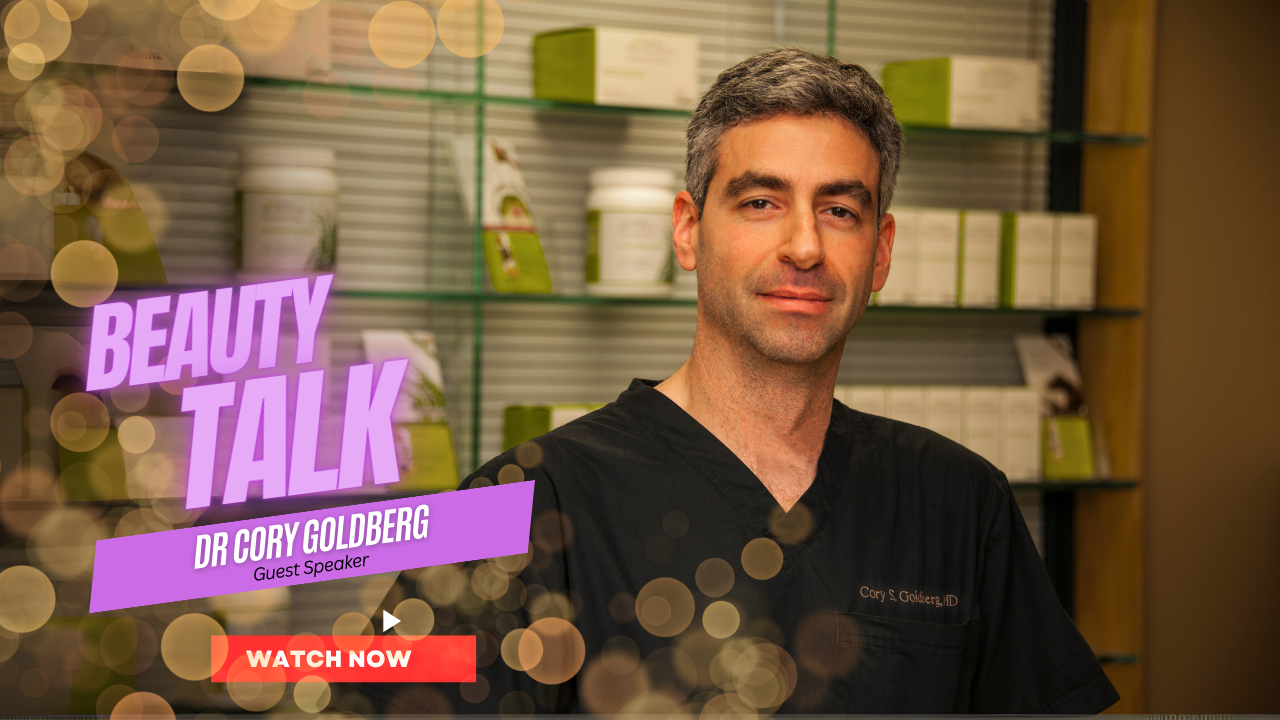Why Digital Marketing Matters for Medical Practice
In the fast-paced digital era, the way we access information and make decisions has undergone a significant transformation. As the healthcare industry adapts to the digital landscape, medical practices must also embrace modern marketing strategies to reach their target audience effectively. Digital marketing has emerged as a powerful tool for medical practices to enhance their online presence, connect with patients, and stay ahead in a competitive market. Digital marketing is crucial for medical practices to reach their target audience, stay competitive in a crowded marketplace, and provide better patient engagement. It allows medical practitioners to engage with potential patients through various online platforms like social media, email, and SMS. A strong digital presence enables clinics to build trust and brand recognition and improve patient retention by providing value-based content, appointment scheduling, telehealth services, and personalized communication. In today's fast-paced digital age, neglecting your medical practice's online presence could lead to lost revenue and fewer patients. In this blog, we will explore the reasons why digital marketing matters for medical practices and how it can revolutionize patient engagement and overall success.
The Necessity of Digital Marketing in Modern Medical Practice
In today's highly competitive healthcare landscape, the necessity of digital marketing cannot be overstated for medical practices. Digital marketing offers immense opportunities to connect with potential patients, build trust, and establish a strong online presence. Traditional forms of advertising, such as billboards or TV ads, have their limitations; they lack the ability to target specific patient populations and engage with them directly. On the other hand, digital marketing allows medical practices to reach their desired audience through various online channels and social media platforms.
One key aspect that makes digital marketing a necessity is the increasing reliance of consumers on the internet for healthcare-related research. According to surveys, 80% of consumers have used the internet to find healthcare information, and a significant number choose a provider based on their online presence. This means that without a robust online presence, medical practices risk losing out on potential patients who are actively seeking healthcare services online.
Digital marketing also offers cost-effective strategies compared to traditional advertising mediums like television or newspapers. By strategically utilizing targeted advertising methods on platforms like Facebook, Instagram, and Twitter, medical practices can reach specific groups of potential patients based on demographics and interests. This precision targeting ensures that the right message is delivered to the right audience at the right time, maximizing the chances of engagement and conversion.
Digital marketing further enables medical practices to enhance their online reputation and build a positive brand image. By posting informative and relevant content on social media, joining discussions in relevant groups, and contributing to platforms like Quora, medical practices can establish themselves as thought leaders in their field. This positions them as trustworthy sources of information and builds credibility among potential patients.
Addressing Patient Needs Through Online Presence
In today's fast-paced world, patients are increasingly seeking convenience and accessibility when it comes to healthcare services. Having a strong online presence allows medical practices to address these needs effectively. For example, offering online appointment scheduling enables patients to book appointments at their convenience without having to make phone calls during business hours. This not only saves time for both the patient and the practice, but also improves the overall patient experience.
Another aspect of addressing patient needs through an online presence is providing accurate and up-to-date information about services, treatments, and medical conditions. Patients often turn to the internet for self-education before seeking professional help. By proactively sharing valuable content through blogs, videos, or podcasts, medical practices can empower patients with reliable information and establish trust even before they step foot in the clinic.
Additionally, an active online presence offers opportunities for patient engagement and feedback. Medical practices can utilize social media platforms or email marketing campaigns to gather feedback from patients, invite them to participate in surveys, or share testimonials. This not only shows that you care about their opinions but also helps identify areas for improvement within your practice based on patient experiences.
Enhancing Trust via Digital Platforms
In the ever-evolving landscape of healthcare, establishing trust with patients is paramount. This is where digital platforms play a pivotal role. Leveraging these platforms enables medical practices to connect with patients, answer their questions, and provide valuable information that enhances trust and credibility.
One way to enhance trust via digital platforms is by creating an informative and user-friendly website. Your website should serve as a virtual representation of your practice, showcasing your expertise, services, and patient testimonials. Ensure that your website is easy to navigate, visually appealing, and provides accurate and up-to-date information. By offering educational content such as blog posts or articles on health topics relevant to your specialty, you establish yourself as a knowledgeable authority in the eyes of potential patients.
Additionally, social media platforms offer unique opportunities for medical practices to engage with patients on a more personal level. By sharing informative content, responding to inquiries promptly, and addressing patient concerns publicly (with proper privacy protection), you can build trust within your online community.
Practical Ways to Expand Your Medical Practice's Reach
One essential step is to optimize your online presence through search engine optimization (SEO) . This involves improving your website's visibility on search engines like Google so that when someone searches for medical services in your area, your practice appears at the top of the results. To optimize your website for SEO, focus on incorporating relevant keywords related to your specialty throughout your website content. This includes titles, headings, and meta descriptions. Additionally, ensure that your website is mobile-friendly and loads quickly to provide a seamless user experience.
Another effective method for expanding your practice's reach is by leveraging online directories and review sites specifically related to healthcare. These platforms serve as trusted resources for individuals seeking medical services.
Additionally, encouraging satisfied patients to leave online reviews can greatly boost your practice's reputation and credibility. Positive reviews act as social proof and influence the decision-making process of individuals looking for medical care. Engage with your patients by asking for feedback and providing them with instructions on how they can leave reviews on popular platforms such as Google, Yelp, or Facebook.
By implementing these practical strategies, optimizing your online presence through SEO, leveraging online directories and review sites, and actively seeking patient reviews, you can effectively expand the reach of your medical practice and attract new patients.
Utilizing Targeted Digital Advertising
In today's digital age, traditional forms of advertising can only take your medical practice so far. To unlock its true potential and reach a wider audience, utilizing targeted digital advertising is crucial. This strategy enables you to focus on particular demographics, geographic areas, and interests, ensuring that the right people see your advertisements at the right time.
Digital platforms like Google Ads and Facebook Ads offer extensive targeting options that allow you to refine your audience with precision. You can set parameters such as age, gender, location, language, interests, and search behavior to ensure that your ads are displayed to relevant individuals. This level of specificity helps maximize the return on investment for your advertising budget.
Utilizing targeted digital advertising also provides valuable data insights that can inform future marketing strategies. Through analytics tools offered by platforms like Google Ads and Facebook Ads, you can track the performance of each campaign, monitor impressions, clicks, and conversions, and gain insights about user behavior. This data empowers you to make data-driven decisions and optimize your advertising efforts for maximum effectiveness.
While targeted digital advertising is an effective way to expand your reach, it is equally important to engage with your existing and potential patients in a more interactive and personalized way. This is where leveraging social media for patient engagement comes into play.
Leveraging Social Media for Patient Engagement
Social media has revolutionized the way people communicate and connect with each other. It has also become an invaluable tool for healthcare providers to engage with their audience on a more personal level. By leveraging social media for patient engagement , medical practices can build stronger relationships, strengthen their brand, and provide valuable educational content.
Social media also allows you to humanize your practice by sharing behind-the-scenes stories or introducing members of your team. By showcasing the friendly faces behind the medical expertise, you create a connection that goes beyond clinical encounters. This personalized approach not only helps strengthen the bond with existing patients but also attracts new ones who feel more comfortable seeking care from familiar faces.
Furthermore, social media enables two-way communication between you and your patients. Patients can ask questions, share feedback, and leave reviews on your social media platforms. Responding promptly and attentively shows that you value their input and care about their experience, which in turn can enhance patient satisfaction and loyalty.
As we've seen, leveraging targeted digital advertising expands your reach to potential patients, while utilizing social media for patient engagement helps nurture relationships with both existing and prospective patients. However, to reap the full benefits of digital marketing, it's crucial to build a robust digital marketing strategy.
Building a Robust Digital Marketing Strategy
In the ever-evolving and competitive landscape of healthcare, building a robust digital marketing strategy is essential to unlocking your medical practice's potential. It requires a comprehensive approach that seamlessly integrates various online channels and techniques to effectively reach and engage with your target audience. Let's explore some key components to consider when creating your digital marketing strategy.
- Identifying your target audience: Understanding their demographics, preferences, and behaviors will help you tailor your messaging and tactics to resonate with them effectively. Conducting market research or utilizing patient data can provide valuable insights into who your ideal patients are and how to reach them.
- Develop compelling content: Create informative blog posts, engaging social media content, educational videos, or even interactive quizzes or assessments that align with their needs and interests. The goal is to position your medical practice as an authoritative source of information while showcasing the unique value you offer.
- Optimize its design and functionality: Ensure that it is visually appealing, user-friendly, and mobile-responsive. Implement search engine optimization (SEO) strategies to improve your website's visibility on search engines like Google. This includes incorporating relevant keywords into your website copy, optimizing page load speeds, and improving the overall user experience.
- Promoted through various digital marketing channels: Leverage social media platforms like Facebook, Instagram, and Twitter to reach your target audience. Paid advertising can also be an effective tool for increasing your online visibility and attracting new patients. Consider utilizing techniques such as pay-per-click (PPC) advertising or social media ads to drive traffic to your website.
- Engaging with your audience: Respond promptly to inquiries and comments on social media platforms or review websites. This shows that you value patient feedback and are dedicated to providing exceptional customer service. Encourage satisfied patients to leave positive reviews, and address any negative feedback promptly and professionally.
Building a robust digital marketing strategy is just the first step; measuring its impact on patient acquisition and retention is equally important.
Measuring the Impact of Digital Marketing on Patient Acquisition and Retention
To truly unlock your medical practice's potential with digital marketing, it's essential to measure the impact of your efforts on patient acquisition and retention. This allows you to assess the effectiveness of your strategies, make data-driven adjustments, and ensure a positive return on investment (ROI). Here are some key metrics and techniques for measuring the impact of digital marketing on patient acquisition and retention:
- Website traffic provides insights into the number of visitors accessing your website. Analyzing website traffic helps you understand how effectively you're attracting potential patients online and whether your digital marketing efforts are driving engagement.
- Conversion rate is a critical metric that measures the percentage of website visitors who take desired actions, such as filling out a contact form or scheduling an appointment. By tracking conversion rates, you can evaluate the effectiveness of different elements within your digital marketing strategy, like landing pages or calls-to-action.
- Patient acquisition cost (PAC) is a crucial metric for understanding the financial implications of acquiring new patients through digital marketing. PAC helps you determine whether your marketing investment is generating a positive ROI and identify areas where you can optimize costs while still attracting high-quality patients.
Think of measuring the impact of digital marketing on patient acquisition and retention as conducting regular check-ups for your medical practice's online performance. It allows you to diagnose any issues, make necessary tweaks or improvements, and ensure your strategies continue to produce the desired outcomes.
To gauge patient retention , analyze metrics like customer lifetime value (CLV) and patient satisfaction ratings. CLV stands for cumulative revenue that a patient generates over the course of their relationship with your practice. Monitoring this metric helps you identify loyal patients and develop retention strategies to nurture those relationships. Patient satisfaction ratings, obtained through surveys or online reviews, provide valuable feedback on the overall patient experience and can inform improvements.
By continuously monitoring these metrics and analyzing data-driven insights, you can refine your digital marketing strategy to optimize patient acquisition and retention efforts effectively.
Discover the Power of EDNA Digital Marketing, Your Trusted Expert in Digital Marketing Services!
Experience unparalleled growth as our digital marketing solutions drive more customers straight to your door. Expand your reach and influence in the digital landscape with
EDNA Digital Marketing
. Our team of Online Strategists, Designers, Content Writers, Copywriters, and Technical Professionals thrives in the ever-changing internet environment. Count on us to craft innovative and cutting-edge digital marketing strategies that set you apart from the competition. Contact us today!










